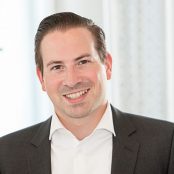Democratic Republic of Congo: Development of a DRC Country Gender Profile
project description
The European Union has made strategic and political commitments in favour of gender equality, as set out in its Strategy for Gender Equality 2020-2025. In November 2020, the European Commission launched the Gender Action Plan (GAP) III 2021-2025 which offers a comprehensive program of action to translate words into concrete actions.
The following six thematic areas are targeted, for which GAP III proposes key performance indicators making it possible to define targeted actions:
1) Ensure protection against all forms of gender-based violence;
2) Promote sexual and reproductive health rights;
3) Promote the economic and social rights of girls and women, as well as their empowerment;
4) Promote equal participation and female leadership;
5) Integrate the women, peace and security agenda;
6) Exploit the opportunities and challenges related to climate change, the environment and digitalization.
The integration of gender aspects in all EU external actions and dialogues is another strategic objective of GAP III. The general objective of the project was to help strengthen, effectiveness and efficiency of the support services for the National Authorising Officer of the European Development Fund, in his capacity as Contracting Authority, in the execution and monitoring of programs and projects.
The specific objective of this assignment was to ensure a better understanding and knowledge of inequalities between men and women, including sexual minorities, in the Democratic Republic of the Congo. The knowledge should contribute to the improvement of existing policies and programs and facilitate the formulation of new actions in the area of gender equality.
Project was conducted in 7 phases:
Phase 1) Documentary study
Phase 2) Organisation of the interviews in 7 provinces
Phase 3) Debriefing meeting in Kinshasa
Phase 4) Draft Country Gender Profile and brochure
Phase 5) Assist EU in Programme Identification
Phase 6) Workshop organisation
Phase 7) Printing brochure and Country Gender Profile.
services provided
- Identification of existing data gaps
- Analysis of the legal and political context of the country as well as of the International agreements on gender equality and the state of play of their ratification by the Government and the progress made in the implementation of national gender policies, and the strategies and plans.
- Organisation and preparation of the interviews with key persons and focus groups taking into account the different experiences of women and men and to other factors of diversity such as age, race, ethnicity, beliefs, sexual orientation, income level, disabilities, and migration status
- Collect quantitative data (e.g. access to health: fertility rate, maternal mortality rate, newborn mortality rate, adolescent birth rate, clandestine abortion rate etc.)
- Draft Country Gender Profile in French and English and 4-page brochure (with key element from the CGP)
- Draft of the Action Fiche for new EU financed Programme
- Draft of the Final Report taking into account the results of the discussions during organised workshops with the stakeholders.


